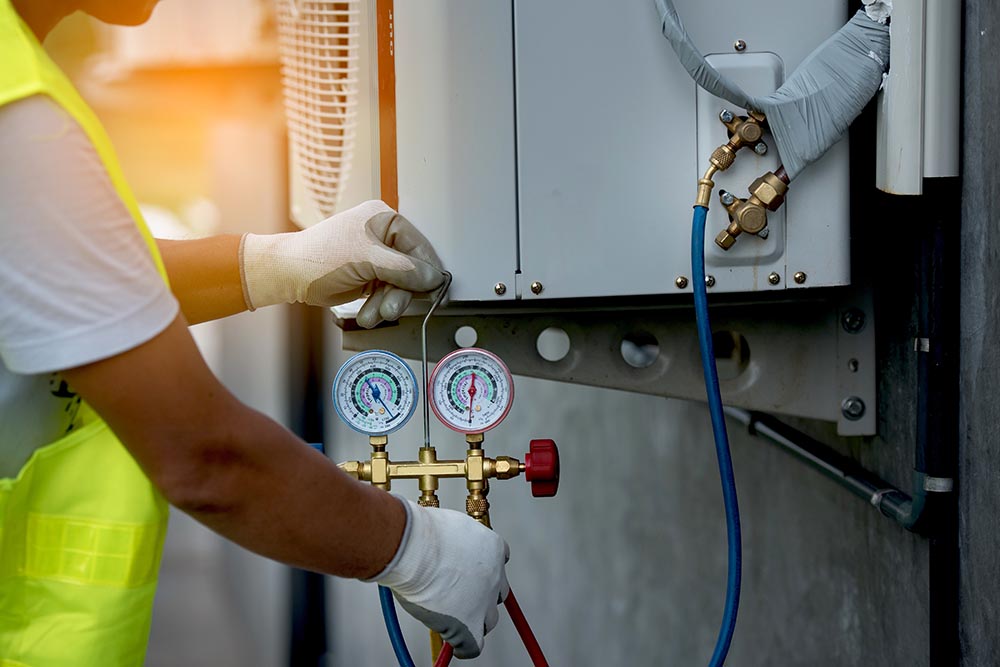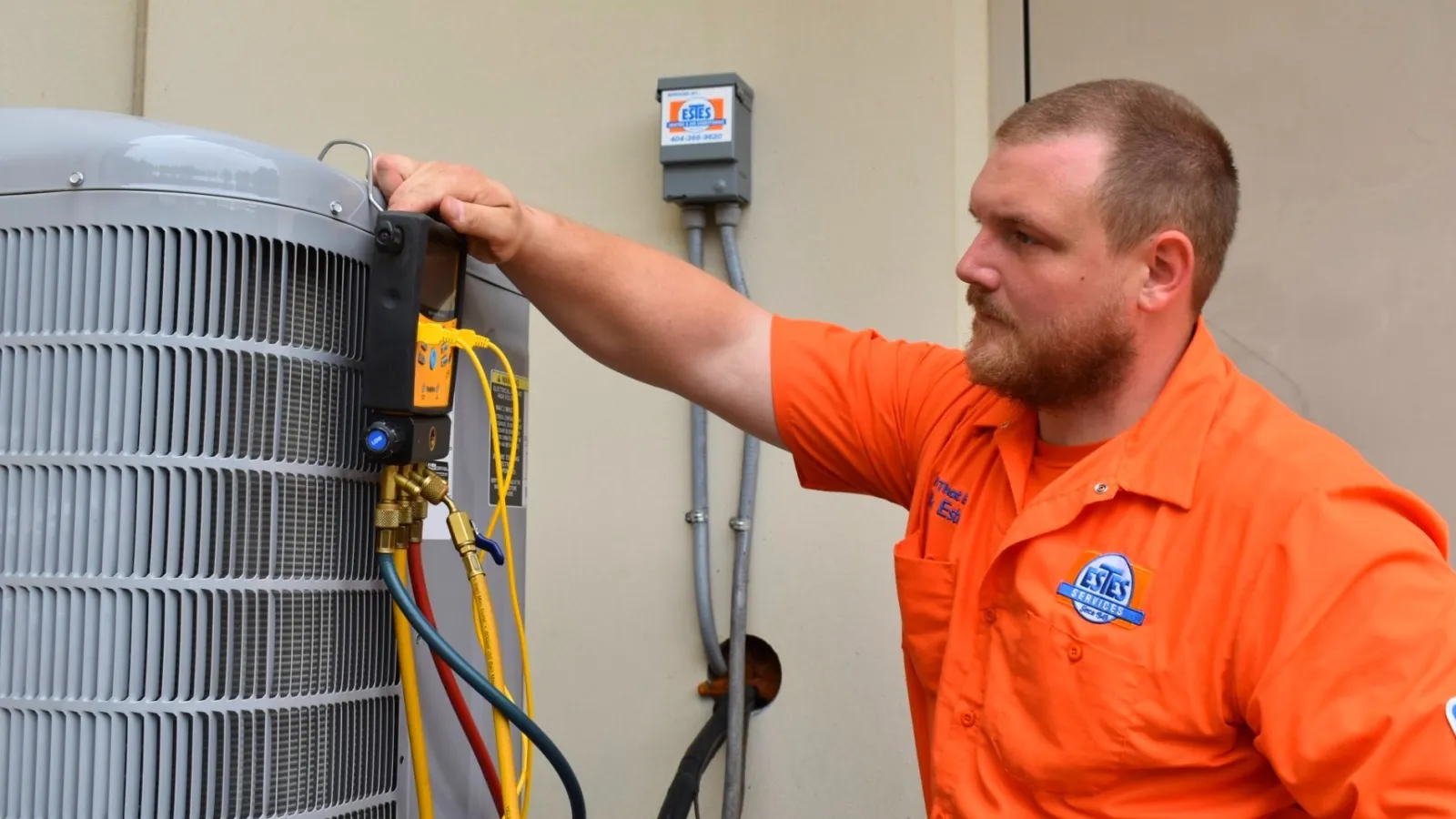Picking In Between a Heat Pump and Heater: Key Factors To Consider for Your A/c Demands
When examining heating options for a/c requires, the decision in between a warmth pump and a heating system can be complicated. Each system provides distinctive advantages customized to details climates and energy performance objectives. Comprehending these differences is crucial for making an enlightened choice. Trick variables such as installation costs and environmental impact additionally make complex the option procedure. Which alternative really aligns with one's comfort and sustainability preferences? The complying with sections will check out these considerations thoroughly.
Comprehending Warm Pumps: How They Work and Their Benefits
While numerous home owners take into consideration various home heating options, understanding just how heatpump feature and their advantages can greatly affect their choice. Heat pumps run by transferring warm as opposed to generating it. In the winter, they draw out warmth from the outside air or ground and transfer it indoors, while in the summer, they reverse this procedure, cooling the home by eliminating warm outside. This twin capability makes them functional for year-round climate control.One of the main benefits of warm pumps is their power performance. They use considerably less power contrasted to traditional heater, possibly causing lower energy expenses (heat pump installation ooltewah tn). Additionally, warm pumps have a smaller sized carbon impact, making them an eco-friendly option. They additionally call for much less maintenance than conventional systems, adding to lasting price savings. On the whole, understanding the mechanics and benefits of heat pumps can assist property owners make informed choices regarding their home heating and cooling requirements
Checking Out Heating Systems: Types, Operation, and Benefits
Heaters can be found in numerous kinds, consisting of gas, electrical, and oil versions, each with distinctive operational mechanisms. Recognizing these differences is important, as they impact performance and heating performance. Additionally, heaters use countless advantages, such as constant warmth output and reliability in cooler climates.
Kinds of Furnaces
Heater can vary substantially in layout and procedure, with heaters being a prominent choice among property owners. There are a number of sorts of heating systems, each utilizing various gas sources and technologies. Gas furnaces prevail, leveraging all-natural gas to generate warm successfully. Electric heating systems, on the other hand, make use of electric resistance to produce warmth, often preferred for their straightforward setup. Oil furnaces, while less usual, are reliable in areas with restricted gas access (heat pump installation ooltewah tn). In addition, condensing heating systems make best use of power effectiveness by recording and reusing exhaust gases. Each kind runs through a system of warm exchangers and ductwork to disperse warm air throughout a home. Understanding the differences in between these furnace types is essential for educated cooling and heating choices
Benefits of Heaters
For house owners looking for dependable heat during cold months, the benefits of heaters are substantial. Heaters give consistent heating, making certain even temperatures throughout the home. They are especially reliable in severe chilly, usually exceeding heat pumps in icy problems. Numerous types, including gas, electric, and oil heating systems, supply flexibility to satisfy diverse needs and preferences.Furnaces likewise have a tendency to have reduced initial installment expenses contrasted to heatpump, making them a more easily accessible option for several. Their durable layout adds to a much longer life-span, with several devices lasting over 15 years with appropriate upkeep. Furthermore, contemporary heaters are frequently geared up with sophisticated innovation for enhanced effectiveness, which can result in decreased energy bills. Generally, furnaces stay a dependable selection for efficient home heating.

Energy Effectiveness: Comparing Warmth Pumps and Furnaces
When comparing power effectiveness in between heatpump and furnaces, the Seasonal Power Performance Ratio (SEER) plays a necessary role in establishing performance. Furthermore, a functional price analysis exposes the long-term monetary ramifications of each system. Comprehending these factors can direct home owners in making informed decisions regarding their heating options.
Seasonal Power Efficiency Ratio
Power efficiency plays a vital duty in the decision-making procedure in between warmth pumps and heaters, particularly when considering the Seasonal Energy Efficiency Ratio (SEER) This statistics measures the cooling effectiveness of heat pumps over a whole air conditioning period, supplying a standard way to assess performance. Greater SEER rankings suggest higher power effectiveness, equating to lower energy consumption and reduced energy expenses. On the other hand, heating systems are normally evaluated making use of the Yearly Gas Usage Performance (AFUE) ranking, which shows home heating performance. When contrasting these two systems, homeowners ought to prioritize SEER ratings for warmth pumps, as they straight influence general energy financial savings and ecological sustainability. A detailed understanding of SEER can especially influence the lasting complete satisfaction and cost-effectiveness of the selected heating and cooling solution.
Operational Price Analysis
Comprehending the functional prices related to heatpump and heating systems is important for house owners assessing their choices. Warmth pumps typically supply higher power effectiveness, converting electrical energy into heat with very little waste. This leads to reduced regular monthly energy bills, specifically in moderate climates. Alternatively, you could try here standard furnaces, especially gas versions, may have reduced ahead of time prices but can sustain greater operational costs in time as a result of sustain costs and performance ratings.Moreover, heatpump can work as both home heating and cooling systems, potentially minimizing the need for separate HVAC systems. While first investments for heatpump may be higher, their long-term cost savings in power performance can make them a more affordable choice for lots of households. Mindful analysis of regional power rates is necessary to determine the most effective option.
Installment Prices: What to Expect for Each Heater
Setup expenses for heating unit can differ considerably between warm pumps and furnaces, affecting home owners' choices. Heatpump generally have higher upfront setup costs, generally varying from $3,500 to $8,000, depending on the device dimension and intricacy of setup. This includes the outdoor unit, interior handling system, and necessary ductwork modifications. On the other hand, furnaces tend to have lower first expenses, averaging between $2,500 and $6,000, which can be appealing for budget-conscious property owners. Installment expenses can enhance if extensive ductwork is required.Moreover, the selection of gas kind for heaters-- natural gas, propane, or electrical-- can additionally influence installment prices. While heat pumps supply power performance, their first financial investment might discourage some buyers. Ultimately, assessing installation prices along with long-term cost savings and efficiency will certainly aid home owners in making educated decisions concerning their heater.
Climate Factors To Consider: Which System Carries Out Much Better in Your Area
Just how do environment conditions affect the efficiency of heating unit? The performance of warmth pumps and furnaces can differ substantially relying on the local environment. In modest climates, warm pumps stand out by successfully moving warmth from the outside air, making them an energy-saving choice. Nevertheless, their performance diminishes in very cold temperatures, where they might battle to draw out enough warm. Conversely, furnaces, especially gas models, supply regular and reputable warmth despite exterior problems, making them preferable in colder regions.In locations that experience milder winter seasons, heatpump can operate efficiently year-round, giving both cooling and heating. In contrast, regions with extreme wintertimes usually gain from the robustness of heaters. Inevitably, recognizing the local environment is important when deciding in between a warmth pump and a heating system, as it directly affects their functional effectiveness and total performance.
Maintenance Requirements: Long-Term Look After Warm Pumps vs. Furnaces
While both warm pumps and heating systems require normal maintenance to assure peak efficiency, their details needs and treatment regimens vary substantially. Furnaces usually require much less frequent focus, with annual inspections being enough to inspect for gas leaks, clean filters, and assess general capability. Their simpler style frequently permits for uncomplicated repairs.In comparison, warm pumps necessitate semiannual maintenance due to their dual role in heating & cooling. This includes cleansing coils, inspecting cooling agent levels, and guaranteeing that both the indoor and outside units work at their ideal. Additionally, heatpump maintenance usually involves more intricate elements, making specialist servicing essential.Neglecting upkeep can lead to diminished efficiency and raised energy costs for both systems. Eventually, house owners need to take into consideration these long-lasting treatment needs when choosing between a heatpump and a heater, as proactive upkeep can extend the lifespan and efficiency of either system considerably.
Ecological Impact: Selecting a Lasting Heating Alternative
The environmental effect of heating unit is a critical evaluation for property owners looking for lasting options. Heat pumps are generally more energy-efficient than typical heaters, as they move warm instead of create it, greatly lowering carbon emissions. By making use of renewable resource resources, such as geothermal or air-source heatpump, homeowners can even more decrease their environmental footprint.On the other hand, natural gas furnaces give off greenhouse gases and add to air contamination, though they commonly give higher warm outcome. Nevertheless, developments in innovation have resulted in the development of high-efficiency heaters that lessen emissions.Ultimately, picking a home heating system involves weighing effectiveness versus ecological influence. House owners are encouraged to assess neighborhood power sources and rewards for renewable systems, guaranteeing a selection that aligns with both individual convenience and ecological responsibility. The choice affects not only instant comfort however also lasting sustainability and environmental wellness.
Frequently Asked Concerns
Exactly How Long Do Warm Pumps and Furnaces Generally Last?
The lifespan of warm pumps commonly varies from 15 to twenty years, while heaters can last between 15 to thirty years. Regular upkeep substantially affects their durability and efficiency in giving home heating options.
Can I Utilize a Warm Pump in Very Cold Climates?
Heatpump can run in very cool environments, however their efficiency reduces as temperatures decline. In such problems, additional heating sources may be needed to keep comfortable interior temperatures and guarantee peak you can check here performance.

What Is the Sound Level of Warmth Pumps Versus Furnaces?
The sound degrees of warm pumps and furnaces differ significantly. Typically, warm pumps run even more quietly than conventional heaters, making them better for those delicate to seem, while heaters may generate louder operational sounds during home heating cycles.
Are Heat Pumps Suitable for Both Home Heating and Air conditioning?
Heat pumps are without a doubt ideal for both home heating and cooling (furnace replacement). They work by transferring heat, providing effective temperature level control year-round, making them a flexible choice for homeowners looking for an all-in-one cooling and heating service
What Dimension Furnace Do I Need for My Home?
Figuring out the appropriate size heating system for a home needs assessing aspects such as square footage, insulation high quality, local climate, and the home's design. Consulting a specialist can assure an accurate analysis and optimal convenience. Warmth pumps usually supply greater power effectiveness, transforming electrical energy into index warm with very little waste. In moderate climates, warm pumps stand out by successfully transferring warm from the outside air, making them an energy-saving alternative. Alternatively, furnaces, especially gas designs, give reputable and regular heat regardless of outdoor conditions, making them better in colder regions.In areas that experience milder wintertimes, warmth pumps can operate effectively year-round, providing both home heating and air conditioning. Warmth pumps are usually extra energy-efficient than traditional furnaces, as they transfer heat instead than produce it, substantially lowering carbon exhausts. By using renewable energy resources, such as air-source or geothermal heat pumps, house owners can additionally minimize their ecological footprint.On the various other hand, natural gas heaters send out greenhouse gases and add to air contamination, though they often give greater heat result.
 Ross Bagley Then & Now!
Ross Bagley Then & Now! Tahj Mowry Then & Now!
Tahj Mowry Then & Now! Amanda Bearse Then & Now!
Amanda Bearse Then & Now! Destiny’s Child Then & Now!
Destiny’s Child Then & Now! Lynda Carter Then & Now!
Lynda Carter Then & Now!